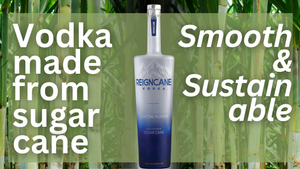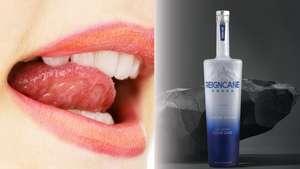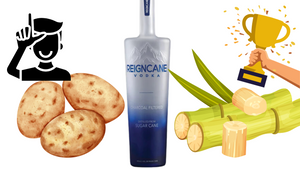Introduction
Vodka, known for its crisp, clean taste, is often enjoyed chilled or even frozen. But can vodka actually go in the freezer without compromising its quality or safety? In this article, we'll explore the science behind freezing vodka, the potential benefits and drawbacks, and the best practices for chilling this popular spirit.
The Freezing Point of Vodka
Vodka, with its high alcohol content (typically around 40% ABV), has a much lower freezing point than water. While water freezes at 0°C (32°F), vodka's freezing point is significantly lower, around -27°C (-16.6°F). This means that vodka won't freeze solid in a standard household freezer, which usually maintains a temperature around -18°C (0°F).
Benefits of Chilling or Freezing Vodka
Chilling vodka can enhance its taste and texture, making it smoother and more viscous. Some people even prefer to freeze vodka partially, creating a slushy consistency that can be enjoyed straight or used in cocktails.
Here are some potential benefits of chilling or freezing vodka:
- Enhanced Flavor: Cold temperatures can mute the harshness of alcohol, allowing the subtle flavors of vodka to shine through.
- Smoother Texture: Chilled vodka has a thicker, more viscous texture, which can be pleasing to the palate.
- Novelty: Frozen or slushy vodka offers a unique and refreshing drinking experience.
Drawbacks of Freezing Vodka
While freezing vodka won't harm it, there are a few potential drawbacks to consider:
- Altered Flavor: Some argue that freezing vodka can slightly dull its flavor, especially in high-quality brands where the nuances are more pronounced.
- Expansion: Vodka expands when frozen, so it's important to leave some headspace in the bottle to prevent it from cracking.
- Inconvenience: Thawing frozen vodka can take time, which might not be ideal if you're in a hurry to enjoy a drink.
Best Practices for Chilling and Freezing Vodka
- Chilling: If you simply want to chill vodka, place the bottle in the refrigerator for a few hours. For a quicker chill, submerge the bottle in an ice bath for about 30 minutes.
- Freezing (partial): If you want a slushy consistency, place the bottle in the freezer for a few hours. Check it periodically to ensure it doesn't freeze solid.
- Freezing (full): To fully freeze vodka, leave the bottle in the freezer for several hours or overnight. Remember to leave headspace in the bottle to allow for expansion.
Conclusion
Vodka can indeed go in the freezer, and whether you choose to chill it or freeze it partially or fully depends on your personal preference. Chilling or freezing can enhance vodka's taste and texture, offering a unique drinking experience. However, be mindful of the potential drawbacks and follow the recommended storage practices to ensure your vodka remains enjoyable.







